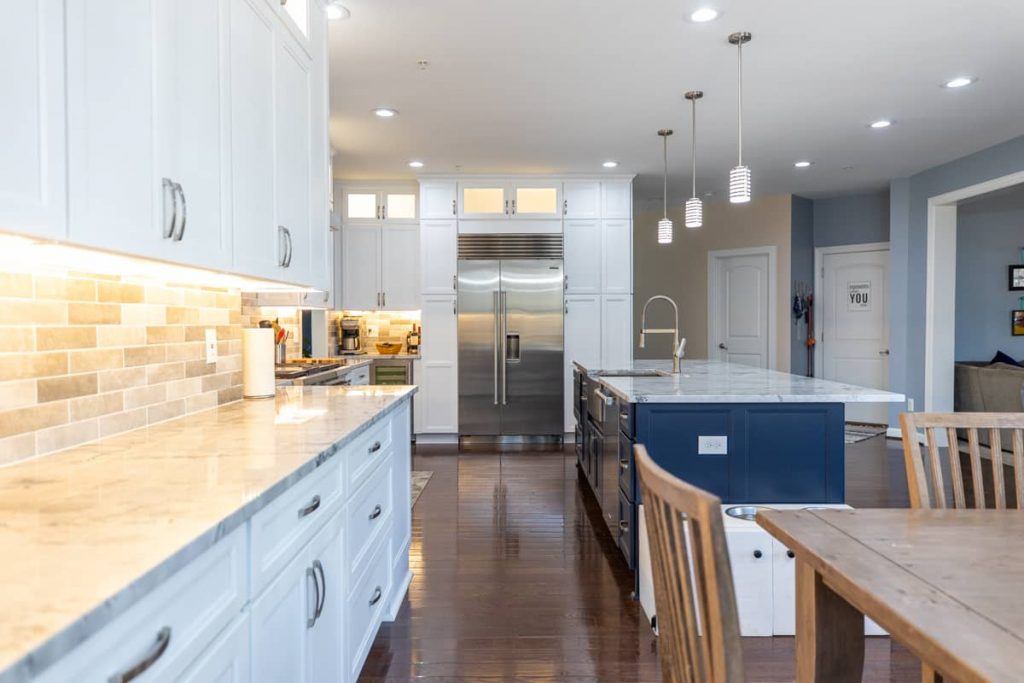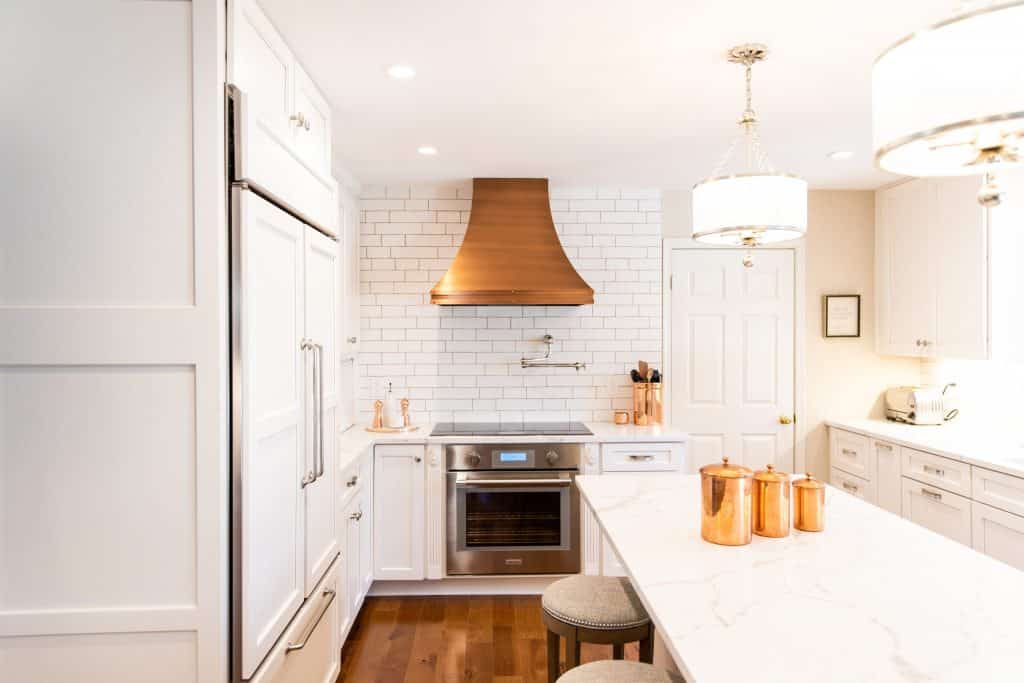It isn’t a secret that remodeling your kitchen will increase your home’s value. What you may not know is the money you spend on this type of home improvement could also help you lower down your tax bill when you sell your home. It’s important to know whether kitchen remodeling tax-deductible or not before you begin to save on your kitchen remodel costs.
Tax rules let you add capital improvement expenses to the cost basis of your home. Now, why is that a big deal? This is because a higher cost basis lowers the total profit, i.e., capital gain.
Further, the tax benefit doesn’t come into play for everyone. The large majority of house sellers would never have to pay taxes on the profits they make on their houses. It’s because of a widely available exemption on the first $250,000 of profit for single files ($500,000 for joint filers).
Moreover, if you move frequently, it is not worth the effort to track capital improvement expenses. However, if you plan to live in your house for a long time or make a lot of upgrades, keeping records of the kitchen remodel costs will be beneficial.
How Does Tax Deduction for Home Improvements Work?
Expenses made during home improvements are not tax-deductible. However, this doesn’t mean that making improvements to your home cannot bring tax benefits.
You gain tax benefits for your home improvements when you sell your home. However, it happens only if you do it in the next year instead of in the tax season that you remodeled your kitchen.
You need to understand how the system works. For instance, will have to begin by understanding the terminology used by the IRS that classifies different types of home projects. Further, you will need to understand what your tax credit and cost basis are as a homeowner.
If you are able to increase your home’s value, you increase your chances of keeping a higher amount of a tax-free capital gain by expanding the cost basis of your property.
Is Kitchen Remodeling Tax Deductible?

If you are remodeling the kitchen for your personal use, don’t expect to get a tax break. Under America’s current tax code, home improvements are generally not tax-deductible. But, there are two instances during the kitchen remodeling process where you may qualify for a tax break.
If you bought a solar water heater during remodeling your kitchen, you might get a tax credit on it. Other than that, updates of a home that you plan to live in are not tax-deductible on your yearly taxes.
Some of the home improvements will help raise your “cost basis.” The cost basis is the price that you calculate taxes for when you sell the home. And if your house zooms in value, you would like to show a higher basis to help you pay less capital gain tax.
Also, the IRS will not allow non-structural changes, for instance, a new coat of paint, to raise your basis. But you can make an argument that a new kitchen is a capital improvement and that should raise your basis.
Installing Energy Efficient Equipment
If you installed energy-efficient equipment at your home last year, including solar panels, solar water heaters, small wind turbines, or fuel cell hardware, you might be able to claim a tax on this year’s tax return.
A tax credit is a dollar-for-dollar rebate of your tax bill. Even some tax credits are refundable. This means, what you owe in federal taxes is less than your credit amount; you will receive the excess as a tax refund.
When it comes to the Renewable Energy Tax Credit, the IRS says, “energy-saving improvements that are made to a personal residence before 1st January 2020 accounts for the credit, which is equal to 30% of the cost of the equipment/property installed.” Furthermore, your personal residence can include your primary home as well as your vacation home.
However, fuel cell equipment is subject to limits. The maximum tax credit that can be claimed for fuel cell hardware is $500 per half a kilowatt of power range, and it must be installed at your primary residence.
Sadly, the tax credit is non-refundable regardless of the property it is claimed for.
Home Renovations For Medical Purposes are Tax Deductible
Tax deductions lessen your taxable income and thus reduce your overall tax liability. The IRS allows tax deductions on medical expenses. For instance, expenses that are related to the treatment, cure, diagnosis, mitigation, or prevention of disease.
Only medical expenses paid out-of-pocket and not reimbursed by your health insurance plan qualify as tax-deductible. Until you have sizeable medical bills, it is not worth sacrificing the large standard deduction to write off your health-related costs.
Besides, if you made substantial improvements to your house to aid a physically disabled person like your spouse or dependent and installed special equipment, those costs are considered medical expenses.
For instance, the construction of ramps is an accepted improvement. Similarly, widening hallways or doorways for wheelchair access, lowering down cabinets in the kitchen will qualify for a complete medical deduction. The caveat here is that they shouldn’t increase the value of the property. If it increases the value, you can get a partial deduction.
Weighing the Tax Benefit of Home Improvements

Earlier, raising your tax basis with the help of mortgage interest and home improvements were two of the most effective ways to avail kitchen remodel tax-deductible options. But recent changes to the law made this negligible in some situations.
The prevailing tax law specifies that if you lived in your house for two of the five years before it is sold, you would not have to pay taxes. However, it is on the initial $250,000 of profit for single filers and $500,000 for married or joint filers in the tax season you are filing for. We recommend that you reach out to a tax agency near you to gain more information for your personal requirement.
As a result, if you are a single filer and expect to receive less than $250,000 in profit from your home sale, you likely won’t see a benefit from including any expenses from kitchen remodeling on your tax basis. You can use the same for married/joint filers as well if their profit from the sale is less than $500,000.
If you want to make kitchen remodeling tax-deductible, it is more likely to be a factor if you have lived in your house for a long time and real estate sales have readily increased in your area. In that case, it is understandable that some portion of your profit would be subject to taxes.
